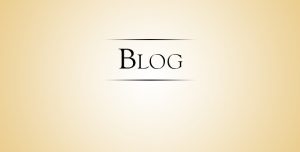

“I, who wished to read the book of the world and the book of my own nature, did presume to despise the letters and signs. I called the world of appearances, illusion. I called my eyes and tongue, chance. Now it is over; I have awakened. I have indeed awakened and have only been born today.” —Siddhartha, Hermann Hesse
I’ve been thinking a lot lately about money, and I hate thinking about money. Ask my wife. However, finances have been so tight as to make this unavoidable. Yes, I’d rather leave the riches to those obsessed with material gain. Yes, I am better off than a large percentage of the world population. And I appreciate those things, I really do. Still, it weighs on me when I must choose between taking my dog to the emergency vet, buying a book I need for my graduate program, patching a flat tire, eating, or paying rent; when every month I’m holding my breath; and when our parents and siblings are having their own hardships, so that I feel guilty we can’t lend them the money they need, and way too guilty to ask to borrow.
But those worries always come with an asterisk. The truth is that my wife and I chose instability because it was necessary to our family’s survival. We moved 200 miles to escape jobs at our hometown newspaper that had slowly withered us and drained our emotional cores. We moved to escape the entropy of abandoning our first home to live in my wife’s childhood bedroom when we couldn’t afford the rent, and because we were bitter, and our marriage was nearly over before it had begun. We moved to finish school, which had fallen second to our abrasive jobs and home life.
All this, which had remained in a state of stagnant decay for so many months, began to change when I read a book that had been given to me by my uncle years ago.
The book was Siddhartha by Hermann Hesse. I picked it up at random from the shelf, at a time when I was becoming more and more complacent, dejected and resentful toward my job as a crime reporter. I began showing up later in the day, spending a lot of my time reading. I’d read in full view of my editors and co-workers, but I also avoided workplace stress a lot by going into the men’s bathroom and reading for an hour or two at a time. It was a place to hide, and I felt like hiding from just about everything at that time. I took out the slightly-worn, slim hardback and began to read. I had no expectations, except to forget about things for a little while and become engrossed in someone else’s existence.
Soon I began disappearing every day; I couldn’t stop reading. Hesse’s Siddhartha seemed not like someone from another universe, but in many ways like me. He lived many lives, and yet he was not fulfilled. He could not find himself in the tasks of his life. It was only when he had completed his journey and could look back on its entirety that he gained internal peace.
It occurred to me that the life I was living was one of many possible paths, and that my essence would continue to collapse until I moved on to another destination in my journey. Soon after, my wife and I left our jobs, sold our belongings and relocated to pursue our educations. It is the reason I am able to write this to you today, but not because of some philosophy or creed—that’s not the purpose of a good book. It is because Siddhartha was as real a person to me as I am to myself. It is because a good book is essentially human. A good book is the most important survival tool. A good book is a gift.
Whether in big ways or small, many of the books that have influenced my life have literally been gifts, from family, from friends. All of us have this power: give books away, buy them for people, don’t wait for birthdays and holidays—do it like the world is ending, because for each of us the danger of total annihilation is constant. You never know when someone might pick up that book you felt to be so innocuous with its cover shut as it changed hands. You never know when the cover might be opened. You never know when someone might begin another life.






